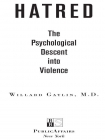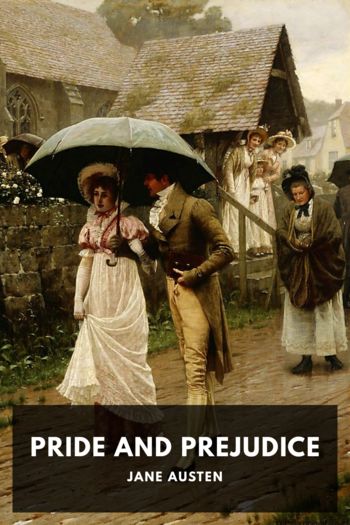Hatred by Willard Gaylin (best manga ereader txt) 📗

- Author: Willard Gaylin
Book online «Hatred by Willard Gaylin (best manga ereader txt) 📗». Author Willard Gaylin
Table of Contents
ALSO BY WILLARD GAYLIN, M.D.
Title Page
HATRED
Chapter 1 - CONFRONTING EVIL HEAD-ON
Chapter 2 - DEFINING HATRED
Prejudice and Bigotry
HATRED - AS AN EMOTION
Chapter 3 - RAGE
Anger as a Model
Chapter 4 - FEELING THREATENED
Deprivation
Inequity, Unfairness, and Injustice
Betrayal
Exploitation and Manipulation
Frustration
Humiliation
Chapter 5 - ENVY
HATRED - AS A THOUGHT DISORDER
Chapter 6 - UNDERSTANDING “NORMAL” BEHAVIOR
Chapter 7 - UNDERSTANDING “SICK” BEHAVIOR
Abnormal Behavior
Sick Behavior
Chapter 8 - THE PARANOID SHIFT
Everyday Paranoia
The Paranoid Personality
Grievance Collectors
Chapter 9 - THE PSYCHOTIC AND THE PSYCHOPATH
The Psychotic
The Psychopath
HATRED - AS AN ATTACHMENT
Chapter 10 - IDENTIFYING THE SELF
Identity: The Self
Modeling and Identification
Chapter 11 - IDENTIFYING THE ENEMY
Scapegoating
The Territorial Enemy: The Enemy at Hand
The Ideological Enemy
THE CULTURES OF HATRED
Chapter 12 - A CULTURE OF HATRED
Antisemitism
Nazi Germany
Chapter 13 - A COMMUNITY OF HATERS
Joined in a Web of Hatred
The Power of Religion
Chapter 14 - CONFRONTING HATRED HEAD-ON
Acknowledgements
INDEX
Copyright Page
ALSO BY WILLARD GAYLIN, M.D.
Psychodynamic Understanding of Depression: The Meaning of Despair
In the Service of Their Country: War Resisters in Prison
Partial Justice: A Study of Bias in Sentencing
Caring
Doing Good: The Limits of Benevolence (with I. Glasser, S. Marcus, and D. Rothman)
Feelings: Our Vital Signs
The Killing of Bonnie Garland: A Question of Justice
The Rage Within: Anger in Modern Life
Rediscovering Love
Adam and Eve and Pinocchio: On Being and Becoming Human
The Male Ego
The Perversion of Autonomy:
The Proper Uses of Coercion and Restraints in a Liberal Society (with Bruce Jennings)
Talk Is Not Enough: How Psychotherapy Really Works
And next to him malicious Envie rode,
Upon a ravenous wolfe, and still did chaw
Between his cankred teeth a venomous tode,
That all the poison ran about his chaw:
But inwardly he chawed his owne maw
At neighbors wealth, that made him ever sad;
For death it was, when any good he saw,
And wept, that cause of weeping none he had
But when he heard of harme, he wexed wondrous glad.
EDMUND SPENSER
The Faerie Queene
HATRED
1
CONFRONTING EVIL HEAD-ON
One day, in July 1941, half of the population of Jedwabne, Poland, murdered the other half—some 1,600 men, women, and children representing all but 7 of the town’s Jews. Before killing them, the Poles tortured and humiliated the Jews. They gouged out their eyes with kitchen knives, dismembered them with crude farm instruments, and drowned the women in shallow waters. Infants were pitchforked in front of their mothers and thrown onto burning coals, all accompanied by the shrieks of delight, indeed the laughter, of their neighbors.
The slaughter of the Jedwabne Jews lasted a whole day. And their neighbors, the entire Polish population of the town, either witnessed or participated in the torment. Roughly 50 percent of the adult Polish males were later identified by name as active participants. Even in Nazi Germany whole communities of “normal” people did not rise up to destroy their neighbors. They mostly left that to the professionals while they passively assented—crime enough. In Poland an entire community voluntarily butchered their neighbors and delighted in the activity.
How can one explain such cold passion, such monumental hatred, such cruelty—not on the part of some insane and deranged madman—but by an entire populace in concert, and against the very neighbors who had previously shared their everyday community and life? Jan T. Gross, who wrote an account of the slaughter in his remarkable book, Neighbors,1 made no attempt to explain the phenomenon, having set as his task the meticulous documentation of this seemingly incredible event.
A distinguished journalist, commenting on this book in his column, addressed the question of motivation (always a treacherous and difficult assignment), which Gross chose to ignore. His answer to the question of why the Poles acted with such bestiality and hatred was “because it was permitted. Because they could.” This response implies that given the opportunity, we would all delight in such pursuits; thus he denied the special impact of history, culture, religious passion, individual and mass psychology, and paranoia—and blamed it squarely on human nature.
As a lifelong student of human nature and human behavior, I know this to be wrong, dangerously wrong. All of us have the opportunity to torture animals, but the majority of us do not. We are disgusted and bewildered by that minority that takes pleasure in doing so. Surely, then, we would not all avail ourselves of the opportunity to torture our neighbors, given the opportunity. I would not pitchfork an infant merely because the opportunity presented itself (“because it was permitted”), nor would the journalist. I would not pitchfork an infant under duress, nor would he. I would like to think that neither one of us would do it even at risk of our lives, but of this I cannot be sure. And I suspect that the columnist himself, when not pressed by journalistic deadlines, would agree that this slaughter was not purely opportunistic.
To say that a massacre such as the one at Jedwabne is not normal to human conduct is obviously not to deny that it is within the stretch of human behavior. We know that it was done. But it was beyond normal expectations. A tsunami may occasionally devastate the coast of Japan, drowning thousands, but we do not consider it an expected or reasonable aspect of weather conditions. Human behavior is as unpredictable as, and more variable than, the weather. Such behavior could not have been anticipated by most of us and even now is not believed by many.
Still, while not “natural,” hatred is a function of human nature. To understand hatred, one must understand the special qualities of human, and only human, life. Human behavior is famous for its plasticity and variability. As a result, we have witnessed such brothers in humanity as the grotesque Pol Pot and the glorious Saint Francis. Neither of these extremes expresses the expectations one has for ordinary people, but both are testament to the protean nature of the human species. I am not offering these two eccentrics as products of genetic determinism, as I might have with the examples of Newton or Mozart.





Comments (0)